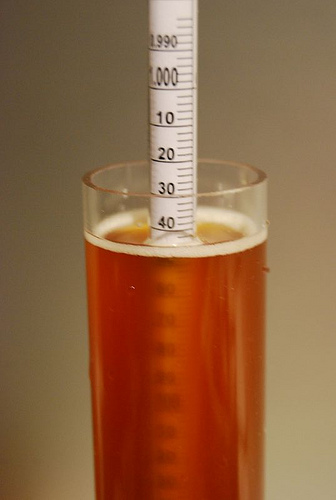Doing a cream ale, My OG was 1.052, Following through the recipe after 24 days and my final gravity ends up at 1.032, recipe says it should be 1.008. I had bubbles and trub when I transferred to the secondary so I know some fermentation happened. What should I do now? Did it not ferment all the way? Here's the recipe
Recipe Type: All Grain
Yeast: Safale S05
Yeast Starter: No
Batch Size (Gallons): 5
Original Gravity: 1.052
Final Gravity: 1.008
IBU: 12.3
Boiling Time (Minutes): 60
Color: 5 SRM
Primary Fermentation (# of Days & Temp): 10 at 68
Additional Fermentation: Cold conditioning
Secondary Fermentation (# of Days & Temp): 14 at 55
8 pounds maris otter
1 pound flaked corn
8 ounces biscuit malt
8 ounces carapils
1 ounces hersbrucker (60)
1/2 ounce saaz (10)
1/2 ounce saaz (flameout)
Mash at 150 for 75 minutes.
Recipe Type: All Grain
Yeast: Safale S05
Yeast Starter: No
Batch Size (Gallons): 5
Original Gravity: 1.052
Final Gravity: 1.008
IBU: 12.3
Boiling Time (Minutes): 60
Color: 5 SRM
Primary Fermentation (# of Days & Temp): 10 at 68
Additional Fermentation: Cold conditioning
Secondary Fermentation (# of Days & Temp): 14 at 55
8 pounds maris otter
1 pound flaked corn
8 ounces biscuit malt
8 ounces carapils
1 ounces hersbrucker (60)
1/2 ounce saaz (10)
1/2 ounce saaz (flameout)
Mash at 150 for 75 minutes.



